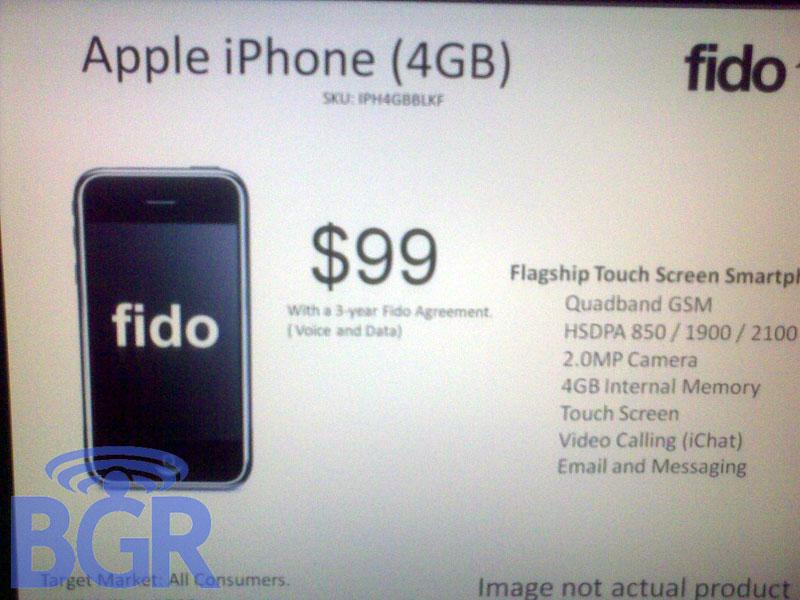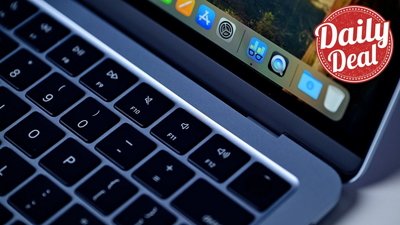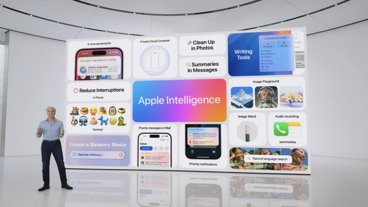The PCS Type Review Certification Board was said on Monday to have approved new 4GB, 8GB, 16GB and 32GB versions of Apple's handsets for use with AT&T.
While most have expected a 32GB model due to advances in technology, Engadget's "trusted" source for the purported leak notes that the range of storage levels is unusually wide for Apple, which until now has never had more than two capacities on sale at a time. It sold 4GB iPhones for just three months, dropping the lowest capacity in September 2007.
The company also has a history of always upgrading the feature set of its devices with each new introduction rather than it scaling back for the sake of a new model, further casting doubt on the apparent update.
Unless the claimed certification is referring to both old and new models, however, the approval would support notions that Apple is moving capacity both upwards and downwards to catch the largest audience possible. Analysts have called for lower-priced iPhones but have until now had little to no corroborating information other than a desire for their existence as part of a market share grab.
The news comes as a purported insider at Canadian provider Fido has leaked a roadmap slide that claims Apple is introducing a 4GB iPhone. It would cost $99 on a plan, according to Boy Genius Report, but would still have the same 3G and 2-megapixel camera. No mention is made of GPS or Wi-Fi, however. The device is listed as supporting "video calling" through an iChat app and is highly suspected of being a fake.
Supposed roadmap image of a 4G iPhone destined for Fido. | Image credits: Boy Genius Report.
AT&T for its part has focused less on the price of individual phones and more on the possibility of cheaper capped data plans that shed unlimited access for a lower, more accessible monthly fee.
 Katie Marsal
Katie Marsal







-m.jpg)






 Malcolm Owen
Malcolm Owen
 William Gallagher
William Gallagher

 Wesley Hilliard
Wesley Hilliard



 Christine McKee
Christine McKee



-m.jpg)




61 Comments
If true, I can't see where an 8GB model could be anything but a $99 phone (it seems reasonable to assume that the current $199 slot will be taken by a 16GB model), which might suggest that a 4GB model (if actually sold in the US) would be free.
That would certainly change the dynamic now, wouldn't it?
If true, I can't see where an 8GB model could be anything but a $99 phone (it seems reasonable to assume that the current $199 slot will be taken by a 16GB model), which might suggest that a 4GB model (if actually sold in the US) would be free.
That would certainly change the dynamic now, wouldn't it?
My head will explode with allL these iphoneus up dates
So if true then the itouch is going to 64g ??TIC TOC
9
A standards body greenlighting cellphones for carriers has supposedly approved four new iPhone models, including a new 32GB model as well as, unusually, a 4GB version.
The PCS Type Review Certification Board was said on Monday to have approved new 4GB, 8GB, 16GB and 32GB versions of Apple's handsets for use with AT&T.
While most have expected a 32GB model due to advances in technology, Engadget's "trusted" source for the purported leak notes that the range of storage levels is unusually wide for Apple, which until now has never had more than two capacities on sale at a time. It sold 4GB iPhones for just three months, dropping the lowest capacity in September 2007.
The company also has a history of always upgrading the feature set of its devices with each new introduction rather than it scaling back for the sake of a new model, further casting doubt on the apparent update.
Unless the claimed certification is referring to both old and new models, however, the approval would support notions that Apple is moving capacity both upwards and downwards to catch the largest audience possible. Analysts have called for lower-priced iPhones but have until now had little to no corroborating information other than a desire for their existence as part of a market share grab.
AT&T for its part has focused less on the price of individual phones and more on the possibility of cheaper capped data plans that shed unlimited access for a lower, more accessible monthly fee.
[ View this article at AppleInsider.com ]
Dear AI,It appears that the 4GB iPhone is true. New evidence is supported by Boy Genius Report's photo taken image of a 4GB iPhone. The rumored $99 iPhone would feature quad-band GSM, tri-band HSDPA and a 2 megapixel camera. Do post this in your updated report of the mysterious 4 models of the new upcoming iPhone. This must point to one of the rumored lower-ended models of the iPhone.
Here's the link:http://www.boygeniusreport.com/
Regards
That's too many models. Apple usually keeps it to 2 or 3 models to reduce costumer confusion.
4GbIf true, probably aimed toward the young. MMS, iChat, Facebook, 2mp Camera etc. "Or China".